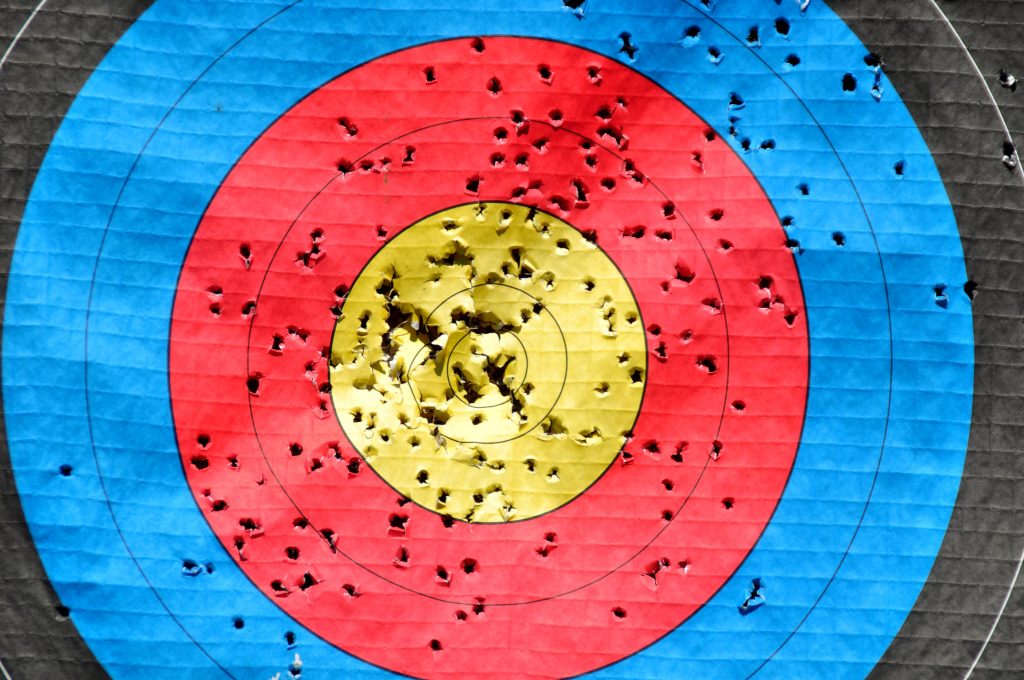How to make your communications more effective
Merriam-Webster defines effective as “producing a decided, decisive or desired effect.” Effective communication, therefore, leads its target audience to a planned or desired outcome. Conversely, ineffective communications do not produce the desired effect, they don’t hit the target.
How do you make sure your communications efforts hit the target?
Not with signs that point the wrong way
This morning I attended a business networking event at a local hotel. I haven’t attended any events in this location before, and I have only been in the hotel’s lobby once before. I walked in, and asked at the check-in desk where the event was being held. I was told to go around the corner to the elevators and down to G2. When I turned around, behind me, was a sign for the event. The sign was facing the check-in desk, not the main entrance, so it would not be seen at all by someone entering the hotel.
This sign was ineffective because it did not address the needs of people entering the lobby from the main entrance. Had the event organizers considered that some people would be entering the hotel through the main entrance, they would have known where to place the sign.
Not with a mismatched presentation and audience
Last week, I attended an event entitled “Communication and Marketing Strategies that Will Grow Your Business.” It was held under the auspices of a networking group, in a business accelerator space. Most of the audience members were very small businesses, freelancers or solopreneurs (companies of one). The presenters were from a large, multinational communications firm that services large clients. They decided to give a presentation on how to develop a marketing plan (a four-step process according to them).
It was clear that the presentation was completely mismatched to the audience when the presenters got to the part about generating different tactics. Among the tactics they advised was holding a press conference. In my career in public relations, I saw my clients hold press conferences very rarely. The fact is that press conferences need to be about big news to get any kind of coverage, especially in this age where media attention is so fractured. A small accounting firm owner or a career coach, two people who were in the audience that day, would never hold a press conference.
This presentation was not as advertised, that is, to share marketing strategies to grow your small business. It was geared toward large enterprises rather than the small businesses that were in the audience. The presenters either did not know who they were addressing or were not thinking if the information they were sharing was appropriate to the needs of the audience. In short, the presentation was ineffective.
Effective communication only happens when you consider the audience
Effective communicators consider the needs of the target audience. Without considering what those recipients need to know, or how they need to know it, the communications will fail, or miss its target.
Bottom line:
You will hit the target more often if you consider what your audience needs.
About Deborah Brody
Deborah Brody writes and edits anything related to marketing communications. Most blog posts are written under the influence of caffeine.



